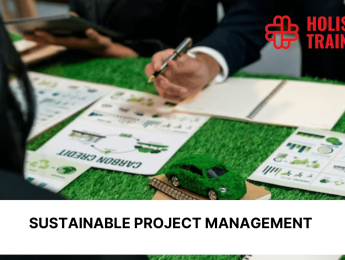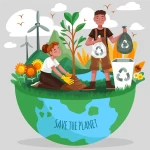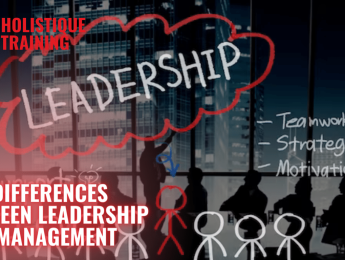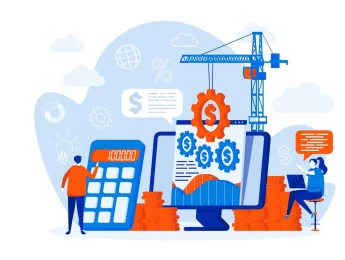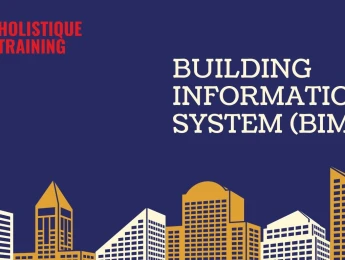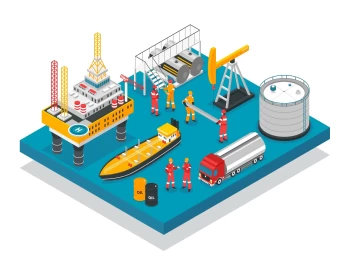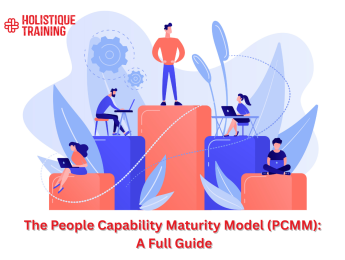- Table of Contents
- Introduction
- What Is Sustainable Project Management?
- What Are the Components of Sustainable Project Management?
- Traditional vs. Sustainable Project Management
- The Benefits of Sustainable Projects
- Steps to Start Implementing Sustainable Project Management
- Challenges of Implementing Sustainable Project Management
- How to Be a Sustainable Project Manager
- The Future of Sustainable Project Management
- Conclusion
Introduction
In a world where environmental consciousness and social responsibility are taking centre stage, the concept of sustainable project management has emerged as a crucial driver of change. This holistic approach not only focuses on achieving project goals efficiently but also ensures that these endeavours have a minimal negative impact on the planet and society. In this comprehensive guide, we will explore what sustainable project management is, its components, how it differs from traditional project management, the myriad benefits it offers, the steps to implement it successfully, the challenges you might encounter, how to become a sustainable project manager, and the future prospects of this essential discipline.
What Is Sustainable Project Management?
Sustainable project management, at its core, is an approach that aims to harmonise project success with environmental, social, and economic sustainability. It seeks to strike a balance between meeting the project's objectives and reducing its adverse effects on the environment and society. This methodology encompasses a wide range of practices and strategies designed to ensure that projects are carried out in a way that respects ecological limits, benefits local communities, and aligns with ethical business practices.
What Are the Components of Sustainable Project Management?
1. Environmental Sustainability
- Resource Conservation: Sustainable project management emphasises the efficient use of resources such as water, energy, and raw materials. This involves employing advanced technologies to optimise resource consumption and reduce waste. For example, in construction projects, modular design and prefabrication techniques can significantly minimise material wastage.
- Waste Reduction: Sustainable projects prioritise waste reduction strategies, including recycling, reusing materials, and implementing proper waste disposal techniques. Waste audits and lifecycle assessments are conducted to identify areas where waste can be minimised effectively.
- Eco-friendly Materials and Technologies: Selecting environmentally friendly materials, such as recycled or biodegradable resources, is a key aspect. Additionally, integrating green technologies like solar panels, energy-efficient HVAC systems, and rainwater harvesting mechanisms contributes to reducing the project's overall environmental impact.
2. Social Responsibility
- Fair Labour Practices: Sustainable projects ensure fair wages, safe working conditions, and equal opportunities for all workers involved. This component involves collaborating with contractors and suppliers who adhere to ethical labour practices and international labour standards, fostering a socially responsible project ecosystem.
- Community Engagement: Engaging with local communities is fundamental. Sustainable project managers actively involve community members in decision-making processes, address their concerns, and provide benefits like job opportunities, skills training, or improved infrastructure. This engagement builds trust and creates a positive social impact.
- Respecting Cultural Diversity: Sustainable projects acknowledge and respect the cultural heritage of the communities they operate in. Preservation of cultural landmarks, traditions, and local customs is integrated into project plans, ensuring that the project contributes positively without erasing the cultural identity of the area.
3. Economic Viability
- Cost Management: Sustainable project management involves meticulous cost management not only during the construction phase but throughout the project's lifecycle. Life-cycle costing techniques are applied to assess the total cost of ownership, considering maintenance, operational, and disposal costs. This approach ensures the project's long-term economic viability.
- Sustainable Procurement: Sustainable project managers engage in responsible procurement practices. They collaborate with suppliers and vendors who adhere to environmental and ethical standards, ensuring that the materials and services used in the project meet sustainability criteria. This extends to transportation logistics, promoting suppliers with green delivery options.
4. Ethical Governance
- Ethical Decision-Making: Ethical governance in sustainable projects involves making decisions that consider the interests of all stakeholders, balancing short-term gains with long-term impacts. Ethical dilemmas are resolved transparently, considering the project's environmental and social consequences. Stakeholders are kept informed, and their concerns are taken seriously, fostering trust and accountability.
- Transparency and Accountability: Sustainable project managers are transparent about their decisions, operations, and outcomes. Regular reporting and communication with stakeholders, investors, and the public build credibility. Accountability mechanisms are in place to address any deviations from the established sustainability goals, ensuring that the project stays true to its ethical foundations.
Incorporating these components into sustainable project management practices ensures a well-rounded approach that not only meets project objectives but also leaves a positive, enduring impact on the environment, society, and the economy. It is the synergy of these components that defines the essence of sustainable project management, making it a transformative force in the realm of project execution.
Traditional vs. Sustainable Project Management
While traditional project management primarily focuses on meeting project objectives, sustainable project management takes a more holistic approach. Here's how they differ:
1. Objectives and Scope:
-Traditional Project Management: Traditional approaches primarily focus on achieving predefined project goals, often limited to budget, time, and scope. The success of the project is measured by meeting these objectives without significant consideration for broader impacts.
-Sustainable Project Management: In contrast, sustainable project management integrates environmental, social, and economic objectives alongside project deliverables. This holistic approach aims to balance the immediate project requirements with long-term sustainability goals, ensuring a positive impact on the environment and society.
2. Stakeholder Engagement:
-Traditional Project Management: Traditional projects might involve stakeholders such as clients, project team members, and sometimes regulators. Engagement is often limited to periodic updates and approvals.
-Sustainable Project Management: Sustainable projects require a more extensive stakeholder engagement approach. This includes not only clients and project teams but also local communities, environmental organisations, regulatory bodies, and diverse interest groups. Sustainable project managers actively seek input from these stakeholders and incorporate their concerns into project plans, fostering a sense of ownership and shared responsibility.
3. Risk Management:
-Traditional Project Management: Traditional project management identifies and manages risks related to project timelines, costs, and resources. Risks are often confined to immediate project-related issues.
-Sustainable Project Management: Sustainable projects encompass a broader spectrum of risks, including those associated with environmental and social aspects. Risks such as regulatory non-compliance, community opposition, and ecological impact are carefully assessed and mitigated. Sustainable project managers anticipate these risks and develop contingency plans, ensuring the project's resilience against sustainability challenges.
4. Metrics and Evaluation:
-Traditional Project Management: Traditional projects rely on conventional metrics such as budget adherence, timeline adherence, and project completion rates. These metrics do not necessarily reflect the project's environmental or social impact.
-Sustainable Project Management: Sustainable projects employ a diverse set of metrics. In addition to traditional parameters, sustainability metrics include carbon emissions, water usage, social impact assessments, ethical compliance, and stakeholder satisfaction levels. These metrics provide a comprehensive view of the project's sustainability performance, allowing for informed decision-making and continuous improvement.
5. Long-term Focus:
-Traditional Project Management: Traditional projects often prioritise short-term goals and immediate results. Long-term implications on the environment and society might not be thoroughly considered.
-Sustainable Project Management: Sustainable projects adopt a long-term perspective. They assess the project's life cycle impact, ensuring that the benefits realised today do not compromise the well-being of future generations. This forward-thinking approach drives the incorporation of sustainable practices throughout the project's life, promoting enduring positive outcomes.
6. Ethical Considerations:
-Traditional Project Management: Ethical considerations in traditional projects are limited to legal obligations and basic ethical standards. There might be limited awareness of the broader ethical implications of project decisions.
-Sustainable Project Management: Ethical governance is fundamental in sustainable projects. Decisions are made considering not only legal obligations but also the moral and social ramifications. Transparency, fairness, and accountability guide the decision-making process, ensuring that the project's impact aligns with ethical principles and societal values.
Understanding these differences highlights the transformative power of sustainable project management. By integrating these principles into project planning and execution, organisations can create projects that not only achieve their goals but also contribute positively to the environment, society, and the overall well-being of stakeholders. Sustainable project management is not just a methodology; it's a mindset that paves the way for a more responsible and sustainable future.
Table 1: Key differences between traditional and sustainable project management

The Benefits of Sustainable Projects
Sustainability isn’t just a trend — it’s a strategic choice with long-term value. Let’s explore the key benefits that sustainable projects offer to organizations, communities, and the environment:
Environmental Preservation
Sustainable projects play a vital role in preserving the environment for future generations. By adopting eco-friendly practices and minimising resource consumption, these projects contribute significantly to biodiversity conservation and natural habitat protection. Through innovative techniques like green infrastructure development and sustainable landscaping, they actively promote environmental restoration, ensuring that ecosystems thrive alongside human development.
Enhanced Reputation
Beyond financial gains, sustainable projects foster a positive public image and enhance the reputation of organisations. As communities become more environmentally conscious, being associated with projects that prioritise sustainability signals social responsibility. This positive reputation not only attracts environmentally conscious customers but also fosters trust among stakeholders. Moreover, it opens doors for collaborative partnerships and business opportunities, enabling organisations to lead by example in their respective industries.
Cost Savings
Sustainable projects often lead to substantial cost savings in the long run. By investing in energy-efficient technologies, waste reduction strategies, and sustainable procurement, organisations minimise operational costs. For instance, energy-efficient buildings substantially cut down electricity bills, and recycling initiatives reduce waste disposal expenses. These savings can be reinvested into further sustainable initiatives, creating a self-sustaining cycle of environmental and financial benefits.
Regulatory Compliance
With increasing environmental regulations and societal expectations, sustainable projects ensure organisations remain compliant with legal standards. By integrating sustainable practices, projects proactively address regulatory requirements, reducing the risk of fines and legal complications. This proactive approach not only protects the organisation's interests but also demonstrates a commitment to upholding environmental laws and regulations, fostering a positive relationship with regulatory authorities and the community.
Stakeholder Satisfaction
Sustainable projects engage with a wide array of stakeholders, including local communities, employees, investors, and governmental bodies. By addressing their concerns and incorporating their feedback, these projects build a sense of ownership and satisfaction among stakeholders. Local communities, especially, benefit from improved infrastructure, employment opportunities, and enhanced quality of life. This active engagement fosters goodwill, reduces conflicts, and ensures that the project garners support from various stakeholders throughout its lifecycle. The resulting collaborative spirit strengthens social cohesion and builds resilient communities, enriching the overall social fabric.
Steps to Start Implementing Sustainable Project Management
1. Establish Clear Objectives
Implementing sustainable project management begins with clearly defined objectives. Organisations must articulate their environmental, social, and economic goals, aligning them with the broader sustainability strategy. These objectives should be specific, measurable, achievable, relevant, and time-bound (SMART). By setting a clear direction, the organisation ensures that everyone involved understands the purpose and importance of integrating sustainability into the project.
Table 2: Examples of SMART goals
SMART Goal | Description |
Goal 1: Reduce Carbon Emissions | Specific: Decrease carbon emissions by 20% within the next fiscal year. Measurable: Track and report monthly emissions, comparing against the baseline. Achievable: Implement energy-efficient technologies and promote telecommuting. Relevant: Aligns with the organisation’s environmental sustainability commitment. Time-bound: Achieve the 20% reduction within the next 12 months. |
Goal 2: Enhance Community Engagement | Specific: Establish a community outreach programme, involving 500 local residents, within six months. Measurable: Track attendance and participation rates in community events and workshops. Achievable: Collaborate with local organisations, conduct surveys, and host interactive workshops. Relevant: Aligns with the project’s commitment to social responsibility. Time-bound: Complete the programme setup and the first community event within six months. |
2. Engage Stakeholders
Stakeholder engagement is pivotal. Identifying and involving all relevant stakeholders from the project's inception ensures diverse perspectives are considered. Actively seek input from local communities, environmental organisations, employees, investors, and regulatory bodies. Engaging stakeholders not only helps in understanding their expectations but also fosters a sense of shared responsibility. Regular communication channels, such as town hall meetings and feedback sessions, create an open dialogue, building trust and collaboration.
3. Conduct Sustainability Assessments
Conduct comprehensive sustainability assessments to evaluate the project’s potential impacts. These assessments involve environmental impact assessments (EIA) and social impact assessments (SIA). EIAs identify potential environmental consequences, allowing for informed decision-making on aspects like site selection and resource usage. SIAs, on the other hand, assess the project's impact on local communities, considering factors such as employment opportunities, cultural heritage, and social well-being. These assessments serve as the foundation for crafting targeted sustainability initiatives.
4. Develop a Sustainability Plan
Based on the assessment findings, develop a detailed sustainability plan. This plan outlines specific sustainability initiatives, targets, and responsibilities. It includes actionable strategies for resource conservation, waste reduction, ethical labour practices, community engagement, and other relevant areas. The plan should be integrated into the overall project management framework, guiding every aspect of the project, from procurement to execution. Clear guidelines and responsibilities ensure that sustainability initiatives are effectively implemented and monitored.
5. Monitor and Report Progress
Continuous monitoring and reporting are essential components of sustainable project management. Establish robust monitoring mechanisms to track progress against sustainability goals. Regularly collect data related to energy consumption, waste generation, social impact metrics, and stakeholder feedback. Analyse this data to evaluate the effectiveness of implemented initiatives. Transparent reporting, both internally and externally, showcases the organisation's commitment to sustainability. It also enables stakeholders to assess the project's impact and fosters accountability.
6. Adjust and Improve
Use the data and feedback gathered to adjust strategies and improve sustainability outcomes. Identify areas where the project excels and areas that require enhancement. Continuous improvement involves learning from successes and challenges alike. Being adaptable and responsive to changing circumstances is crucial. Sustainable project management is an iterative process. As new technologies and best practices emerge, be willing to incorporate them into the project framework, ensuring that the project stays at the forefront of sustainability innovation.
7. Foster a Culture of Sustainability
Implementing sustainable project management isn't just a checklist; it's a cultural shift. Organisations should invest in educating and empowering their workforce. Training programmes and workshops can enhance employees' understanding of sustainability principles and their role in achieving project sustainability goals. Encourage innovative thinking and recognise and reward sustainable practices. By fostering a culture where sustainability is ingrained into the organisation's DNA, sustainable project management becomes a natural part of every project's life cycle.
By following these steps, organisations can not only initiate but also sustain a culture of sustainable project management. The integration of sustainability becomes a strategic advantage, driving positive impact while ensuring the organisation's long-term success and contributing meaningfully to a sustainable future.
Challenges of Implementing Sustainable Project Management
While the benefits of sustainable project management are evident, there are also challenges:
Initial Costs
One of the primary challenges in implementing sustainable project management is the perceived higher initial costs. Integrating eco-friendly technologies, conducting thorough environmental assessments, and ensuring ethical labour practices can require substantial investments. While these upfront costs may seem daunting, it's essential to view them as strategic investments. Over time, sustainable practices often lead to significant cost savings through reduced energy consumption, minimised waste, and increased operational efficiency. Organisations need to balance short-term financial constraints with the long-term benefits of sustainability.
Resistance to Change
Introducing sustainability initiatives might face resistance from both internal and external stakeholders. Within the organisation, employees might resist changes to established workflows and practices. Resistance can stem from fear of the unknown, lack of awareness, or misconceptions about sustainability’s impact on productivity. It's crucial to invest in change management strategies, including comprehensive communication, training programmes, and incentives to motivate employees. Externally, resistance can arise from communities, suppliers, or partners unfamiliar with sustainable practices. Building awareness, engaging in open dialogue, and showcasing the benefits of sustainable initiatives can help mitigate resistance.
Complex Regulations
Navigating the intricate landscape of sustainability regulations and standards can be challenging. Regulations vary across regions and industries, and staying compliant requires continuous monitoring and adaptation. Legal complexities often arise from environmental impact assessments, land use regulations, waste management laws, and ethical labour standards. Sustainable project managers need to invest in legal expertise to ensure full compliance. Proactive engagement with regulatory bodies, environmental agencies, and local authorities is necessary to stay informed about evolving regulations and establish collaborative partnerships that facilitate compliance.
Measuring Impact
Quantifying the social and environmental impact of a project is a complex task. Unlike traditional project metrics, impact measurements often involve intangible factors such as community well-being, biodiversity preservation, and cultural heritage conservation. Accurately assessing these impacts requires interdisciplinary expertise, including social scientists, environmental experts, and economists. Developing comprehensive impact assessment methodologies, including qualitative and quantitative data, helps organisations gain insights into the holistic effects of their projects. Despite the complexity, these assessments are crucial for ensuring that projects align with sustainability goals.
Stakeholder Management
Stakeholder management in sustainable projects is multifaceted. Engaging diverse stakeholders, addressing their concerns, and balancing their interests require advanced interpersonal and negotiation skills. Communities, environmental activists, investors, and local authorities often have conflicting interests, making stakeholder management challenging. Sustainable project managers need to create an inclusive environment for dialogue, actively listen to stakeholder concerns, and find mutually beneficial solutions. Failure to manage stakeholders effectively can lead to project delays, conflicts, and reputational damage.
Resistance from Suppliers and Partners
Suppliers and partners may resist adopting sustainable practices due to cost implications, lack of awareness, or resistance to change. Encouraging suppliers to adhere to sustainable sourcing practices and collaborating with partners committed to ethical and environmental standards can be a complex process. Negotiation, collaboration, and sometimes financial incentives are necessary to bring suppliers and partners on board. Building long-term relationships based on shared sustainability goals can overcome initial resistance and create a network of like-minded collaborators.
Addressing these challenges requires a holistic approach. Sustainable project managers must be proactive, adaptable, and resourceful. They need to build alliances, foster a culture of sustainability within the organisation, and actively seek innovative solutions. Overcoming these challenges not only ensures the successful implementation of sustainable project management but also positions organisations as responsible stewards of the environment and society, paving the way for a sustainable future.
How to Be a Sustainable Project Manager
Becoming a sustainable project manager involves developing a unique skill set:
1. Sustainability Knowledge
To be a sustainable project manager, you must possess a deep understanding of sustainability principles, frameworks, and best practices. Stay updated with the latest developments in sustainability standards, green technologies, and environmental regulations. Continuous education, attending workshops, and obtaining relevant certifications will help you enhance your knowledge and apply sustainable practices effectively.
2. Stakeholder Engagement
Develop excellent stakeholder engagement skills. Effective communication and active listening are key. Understand the concerns and expectations of diverse stakeholders, from local communities to environmental organisations and regulatory bodies. Cultivate relationships built on trust and transparency. Engage stakeholders early and often, involving them in decision-making processes. This inclusive approach ensures that the project reflects the needs and values of the community, fostering a sense of ownership and collaboration.
3. Environmental and Social Impact Assessment
Acquire expertise in environmental and social impact assessment methodologies. Understand how to conduct comprehensive assessments, identify potential risks and impacts, and develop mitigation strategies. This knowledge helps you proactively address environmental conservation, community well-being, and ethical labour practices, aligning the project with sustainable objectives.
4. Sustainable Procurement
Master the art of sustainable procurement. This involves sourcing eco-friendly materials and services, considering factors like recyclability, energy efficiency, and ethical sourcing. Collaborate with suppliers who adhere to sustainability standards and promote green procurement practices. By making environmentally responsible procurement decisions, you contribute significantly to the overall sustainability of the project.
5. Risk Management
Integrate sustainability risks into your project risk management plan. Environmental, social, and ethical risks should be identified, assessed, and addressed alongside traditional project risks. Develop contingency plans for potential sustainability-related challenges. Being proactive in risk management ensures that the project remains resilient and adaptable, even in the face of sustainability-related uncertainties.
6. Continuous Learning
Sustainable project management is an ever-evolving field. Stay curious and open to learning. Engage with thought leaders, participate in forums and conferences, and read extensively on sustainable practices. Embrace innovation and be willing to explore new technologies and methodologies. By staying abreast of the latest trends and advancements, you can infuse fresh ideas into your projects, making them more sustainable and impactful.
7. Leading by Example
As a sustainable project manager, your actions speak louder than words. Demonstrate your commitment to sustainability through your decisions and behaviours. Foster a culture of sustainability within your project team and organisation. Encourage eco-friendly practices, waste reduction, and energy conservation. Be an advocate for ethical and socially responsible initiatives. By leading by example, you inspire others to embrace sustainable practices, creating a ripple effect of positive change within your organisation and beyond.
Becoming a sustainable project manager is not just about acquiring technical skills; it's about embodying a mindset of responsibility and stewardship. By combining technical expertise with a passion for sustainability, you can drive meaningful change, contribute to a more sustainable world, and inspire others to follow in your footsteps. Remember, sustainable project management is not a destination but a continuous journey of learning, growth, and positive impact.
The Future of Sustainable Project Management
The future of sustainable project management is promising and vital for addressing global challenges:
Growing Demand
The future of sustainable project management is undeniably bright. As environmental concerns intensify and social responsibility becomes paramount, the demand for sustainable project managers will continue to grow globally. Organisations across diverse sectors will seek professionals who can guide them toward more sustainable practices, ensuring that projects align with environmental conservation goals and societal well-being.
Technological Integration
Emerging technologies will play a pivotal role in shaping the future of sustainable project management. Advanced data analytics, artificial intelligence, and machine learning will enable project managers to analyse vast amounts of data, identify patterns, and optimise resource usage. IoT (Internet of Things) devices and sensors will provide real-time data on energy consumption, environmental factors, and project progress, facilitating informed decision-making. Blockchain technology will enhance transparency and traceability in supply chains, promoting ethical sourcing and procurement.
Global Collaboration
Sustainable project management will increasingly require global collaboration. Organisations, governments, non-governmental organisations (NGOs), and local communities will collaborate to develop and enforce international sustainability standards. Cross-border partnerships will facilitate the exchange of knowledge, best practices, and innovative solutions. This global collaboration will create a unified approach toward addressing pressing environmental issues, ensuring that projects adhere to high sustainability benchmarks worldwide.
Education and Certification
Educational institutions and professional bodies will respond to the growing demand for sustainability expertise. Specialised degree programmes, certifications, and training courses in sustainable project management will become more prevalent. These educational initiatives will equip aspiring project managers with the knowledge and skills necessary to navigate the complexities of sustainable practices. Certification programmes will establish industry standards, ensuring that professionals possess the expertise required to lead sustainable projects effectively.
Corporate Responsibility and Investor Expectations
Corporate responsibility and investor expectations will drive the integration of sustainable practices into projects. Investors and shareholders will demand transparency regarding a company's environmental and social impact. Organisations will be under increasing pressure to disclose their sustainability efforts, ensuring that projects are aligned with environmental, social, and governance (ESG) criteria. Sustainable project managers will play a vital role in meeting these expectations, guiding organisations toward responsible and ethical project execution.
Conclusion
Sustainable project management is more than just a trend; it's a fundamental shift towards responsible project execution. It's about realising that the success of projects should not come at the expense of the planet or society. By embracing sustainability principles, organisations can build a brighter and more sustainable future while achieving their project goals. As a sustainable project manager, you'll be at the forefront of this transformative journey, driving positive change, and leaving a lasting impact on the world.
If you're looking to enhance your skills and become a proficient sustainable project manager, our course, Project Management for Non-Managerial Positions, is the perfect getaway. Discover innovative techniques, gain hands-on experience, and lead projects that not only meet objectives but also leave a lasting positive impact on the environment and society. Enrol now and embark on your journey toward becoming a driving force in the realm of sustainable project management.


